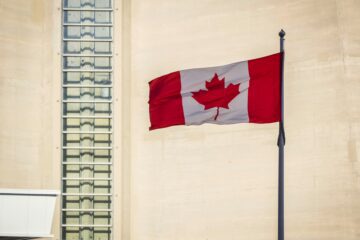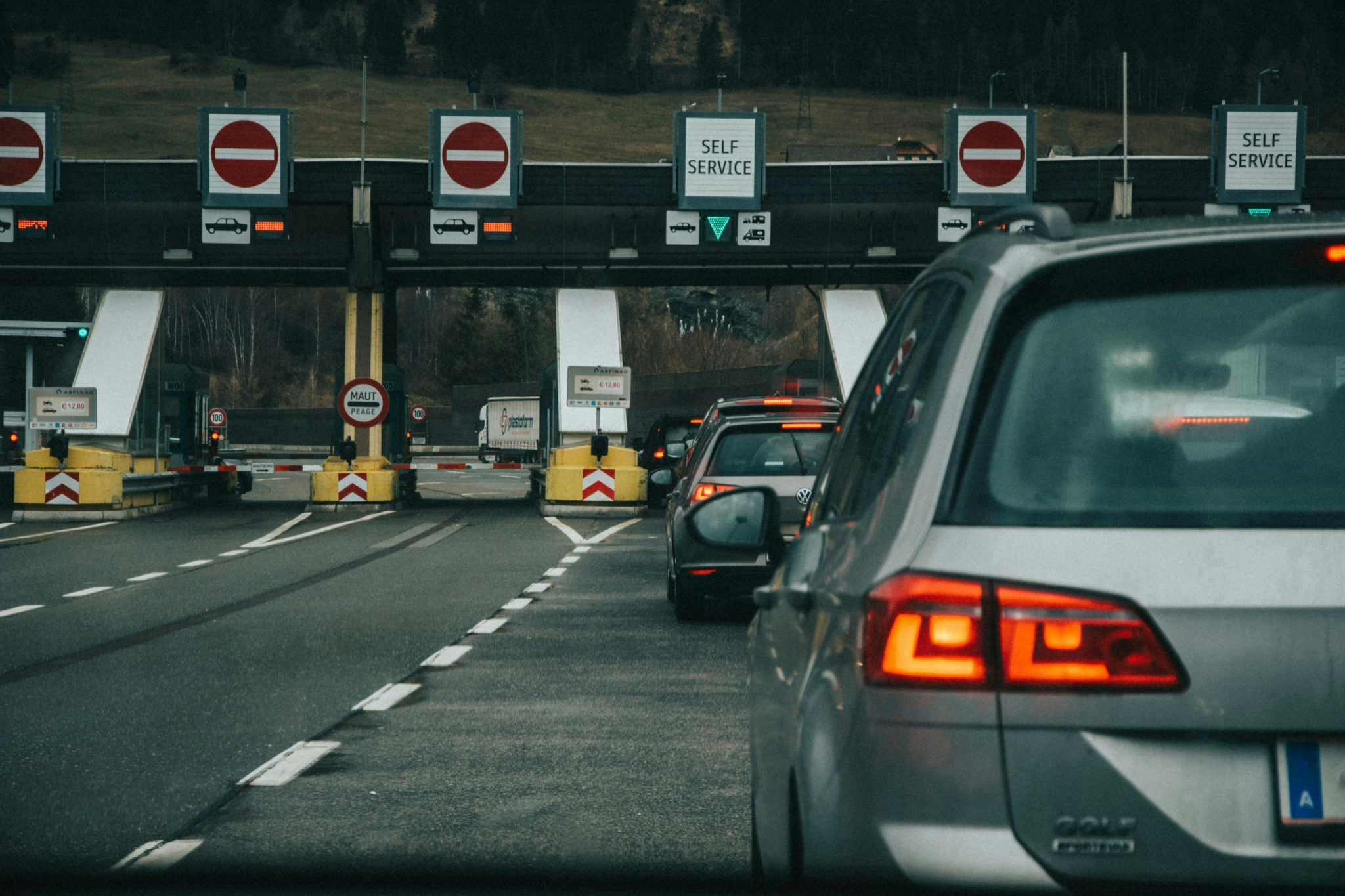Crossing international borders can be an exciting yet daunting experience for many tourists. Canada, with its vast landscapes and multicultural cities, attracts millions of visitors each year. However, before travelers can embark on their Canadian adventures, they must first navigate the procedures set by the Canada Border Services Agency (CBSA). Understanding what to expect when encountering CBSA officials can significantly ease the stress of crossing Canadian borders. This article provides an in-depth look at the CBSA processes, common queries tourists face, and essential tips for a smooth entry into Canada.
Understanding CBSA: A Guide for Incoming Tourists
The Canada Border Services Agency (CBSA) is the federal agency responsible for managing the nation’s borders. It plays a crucial role in facilitating the flow of legitimate travelers and goods while maintaining the safety and security of Canada. For tourists, the CBSA is often their first point of contact upon entering the country. For additional support, understanding various crossing Canadian borders tips can be beneficial. Whether arriving by air, land, or sea, all visitors are required to pass through a CBSA checkpoint, where officers assess documentation, verify identities, and ensure compliance with Canadian laws.
Tourists should be aware that the CBSA holds the authority to question, search, and even deny entry to individuals if deemed necessary. The agency’s primary goal is to protect Canadian citizens and visitors alike by preventing illegal activities such as smuggling and trafficking. Therefore, understanding the role and responsibilities of the CBSA can help tourists better prepare for their arrival in Canada and ensure a smooth and hassle-free entry process. Incorporating crossing Canadian borders tips can aid in this preparation.
Common Queries Tourists Face at Canadian Borders
When approaching Canadian borders, tourists can expect CBSA officers to ask a variety of questions aimed at assessing the purpose and legitimacy of their visit. Common queries include the reason for the visit, duration of stay, and intended place of accommodation. Officers may also inquire about the visitor’s employment status, financial means to support the trip, and any previous travel history to Canada or other countries. These questions are standard procedure and are designed to ensure that visitors comply with Canadian immigration laws. These are important crossing Canadian borders tips.
In addition to personal inquiries, CBSA officers often ask about items being brought into the country. This includes questions about the declaration of goods, the presence of restricted or prohibited items, and the transportation of large sums of cash. It is essential for tourists to answer honestly and accurately, as providing false information can lead to delays, fines, or even denial of entry. Understanding these common queries can help tourists prepare their responses and reduce any anxiety associated with the border crossing process.
Preparing for Your Encounter with Canadian CBSA
Preparation is key when it comes to crossing Canadian borders smoothly. Tourists are advised to have all necessary documentation ready, including a valid passport, visa (if required), and any additional paperwork such as invitation letters or proof of accommodation. It is also beneficial to familiarize oneself with Canadian customs regulations to avoid any misunderstandings or unintentional violations. Being well-prepared not only speeds up the process but also demonstrates to CBSA officers that the visit is legitimate and well-planned. Some general crossing Canadian borders tips include having all documents accessible.
Moreover, tourists should be prepared for potential searches of their luggage and personal belongings. While this may seem intrusive, it is a standard procedure aimed at ensuring safety and compliance with Canadian laws. Having neatly packed luggage and being transparent about the contents can facilitate a quicker inspection. Additionally, maintaining a polite and respectful demeanor when interacting with CBSA officers goes a long way in ensuring a positive experience at the border.
Essential Tips for Visitors Entering Canada
To enhance their experience at Canadian borders, tourists should consider several essential tips. First and foremost, honesty is paramount; providing truthful information to CBSA officers helps build trust and reduces the likelihood of complications. Visitors should also be aware of the items they are allowed to bring into the country, as certain goods may be restricted or require declaration. Familiarizing oneself with these regulations can prevent unnecessary delays or penalties.
Additionally, understanding the cultural norms and expectations of Canada can aid in a smoother transition. For instance, being punctual, patient, and respectful during the border crossing process reflects positively on tourists. It is also helpful to have a basic understanding of Canadian geography and the local area of arrival, as this may be discussed during the CBSA interview. Some final crossing Canadian borders tips include being familiar with the local geography. By following these tips, visitors can enjoy a seamless entry into Canada and focus on the enriching experiences that await them.
Navigating the procedures set by the Canada Border Services Agency is an integral part of the travel experience for tourists entering Canada. By understanding the role of the CBSA, familiarizing themselves with common queries, and preparing adequately, travelers can ensure a smooth and stress-free entry into the country. The key lies in transparency, preparation, and respect for the processes in place. With these elements in mind, tourists can focus on the exciting journey ahead and make the most of their time exploring the diverse and beautiful landscapes of Canada.
FAQ: Crossing Canadian Borders with CBSA
- What is the CBSA?
- The CBSA (Canada Border Services Agency) is the federal agency responsible for managing Canada’s borders and ensuring safety and compliance with immigration and customs laws.
- What documents do I need to enter Canada?
- Travelers need a valid passport, visa (if required), and any additional paperwork such as invitation letters or proof of accommodation.
- What questions can I expect from CBSA officers?
- CBSA officers may ask about your purpose of visit, duration of stay, accommodation plans, financial means, and travel history.
- Can CBSA officers search my belongings?
- Yes, CBSA officers are authorized to search luggage and personal belongings to ensure compliance with Canadian laws.
- What happens if I lie to a CBSA officer?
- Providing false information can result in fines, delays, or denial of entry into Canada.
- What items do I need to declare when entering Canada?
- You must declare goods, restricted or prohibited items, and large sums of cash exceeding $10,000 CAD.
- Are there any restricted items I should avoid bringing into Canada?
- Yes, restricted items include certain foods, plants, animals, and weapons. Familiarize yourself with Canadian customs regulations before traveling.
- Do I need a visa to visit Canada?
- It depends on your nationality. Check the Government of Canada website to see if you require a visa or an Electronic Travel Authorization (eTA).
- How long can I stay in Canada as a tourist?
- Most tourists can stay for up to 6 months. The exact duration will be specified by the CBSA officer at the point of entry.
- What should I do if my entry to Canada is denied?
- If denied entry, the CBSA officer will provide reasons. You may need to address the issue or reapply with proper documentation.
- Can I bring prescription medication into Canada?
- Yes, but ensure it is properly labeled, and carry a prescription or note from your doctor.
- What is the primary role of CBSA officers?
- CBSA officers verify documentation, assess identities, and ensure compliance with Canadian laws to protect the country and its visitors.
- What should I do if I have food items in my luggage?
- Declare all food items at the CBSA checkpoint. Some foods may be restricted or require special permissions.
- What should I know about Canadian customs regulations?
- Familiarize yourself with prohibited and restricted items, duty-free allowances, and the requirement to declare all goods.
- Is it necessary to have travel insurance when visiting Canada?
- Travel insurance is not mandatory but highly recommended to cover medical emergencies and unforeseen events.
- How can I make my interaction with CBSA officers smooth?
- Be honest, polite, and prepared with all necessary documents and information about your trip.
- Can I enter Canada with a criminal record?
- It depends on the nature of the record. You may need to apply for rehabilitation or a Temporary Resident Permit.
- What should I do if I am carrying cash over $10,000 CAD?
- Declare the amount to the CBSA. Failing to declare large sums of cash can result in penalties.
- Are CBSA procedures the same for all entry points?
- While the core procedures are similar, there may be slight variations depending on the entry point (airport, land border, or seaport).
- Can I bring alcohol or tobacco into Canada?
- Yes, within certain limits. Check the duty-free allowances for alcohol and tobacco before traveling.
- What should I do if I don’t speak English or French?
- CBSA provides translation services. Inform the officer if you require assistance in your preferred language.
- Can I travel to Canada with my pet?
- Yes, but you need to meet specific requirements, including vaccinations and documentation. Check the CBSA guidelines for pet travel.
- Do I need to fill out any forms before arriving in Canada?
- Yes, travelers may need to complete a customs declaration form or use the Advance Declaration option through the ArriveCAN app.
- How can I check my visa requirements for Canada?
- Visit the official Government of Canada website to check visa requirements based on your nationality.
- What is the ArriveCAN app?
- ArriveCAN is a digital platform where travelers can submit their customs and immigration information in advance.
- Can CBSA officers ask for my phone or laptop?
- Yes, officers have the authority to inspect electronic devices for compliance and security reasons.
- What happens if I refuse to answer a CBSA officer’s questions?
- Refusing to cooperate may lead to delays, additional inspections, or denial of entry.
- What are duty-free allowances for travelers to Canada?
- Travelers can bring goods within specified limits duty-free. Check the CBSA website for details based on your duration of stay.
- What should I know about cannabis regulations in Canada?
- Bringing cannabis into or out of Canada is illegal, even if it is for medical purposes or from a country where it is legal.
- Can I bring gifts into Canada?
- Yes, within a value limit of $60 CAD per gift. Gifts exceeding this value may be subject to duty and taxes.
- How can I avoid delays at the Canadian border?
- Prepare all documents, answer questions honestly, and declare all items. Use the ArriveCAN app if possible.
- Do children require special documentation to enter Canada?
- Yes, children traveling alone or with one parent need additional documents such as a consent letter from the non-accompanying parent.
- What should I do if I am selected for a secondary inspection?
- Follow the officer’s instructions and provide any additional information requested. Secondary inspections are routine for some travelers.
- How early should I arrive at the airport for a flight to Canada?
- Arrive at least 3 hours before your flight for international travel to complete all procedures smoothly.
- What do I do if I lose my passport while in Canada?
- Contact your country’s embassy or consulate in Canada to report the loss and apply for a replacement.
- Can I bring my own vehicle into Canada?
- Yes, but ensure it meets Canadian safety and emission standards. You may need to declare the vehicle and pay duties.
- Are there any fees when entering Canada?
- There are no entry fees, but you may need to pay duties on goods exceeding duty-free limits or for certain permits.
- Can CBSA officers deny me entry for medical reasons?
- Yes, if a medical condition poses a risk to public health or safety, entry may be denied.
- What should I do if I miss my connecting flight in Canada?
- Inform airline staff immediately and seek assistance. You may need to go through CBSA procedures again for re-entry.
- Can I use a Global Entry card to expedite my entry into Canada?
- No, Global Entry is a U.S. program. However, Canada offers the NEXUS program for expedited border clearance.
- What is the NEXUS program?
- NEXUS is a trusted traveler program for expedited processing at Canadian and U.S. borders.
- What is considered a large sum of cash when entering Canada?
- A sum exceeding $10,000 CAD must be declared to CBSA upon entry into Canada.
- Can I bring firearms into Canada?
- Firearms are heavily regulated. You must have proper permits, and some firearms are prohibited. Check CBSA guidelines for details.
- Do I need a return ticket when visiting Canada?
- While not mandatory, having a return or onward ticket can demonstrate your intention to leave Canada after your visit.
- Can I work in Canada as a tourist?
- No, tourists are not permitted to work in Canada. You must apply for a work permit if you intend to work.



0 Comments